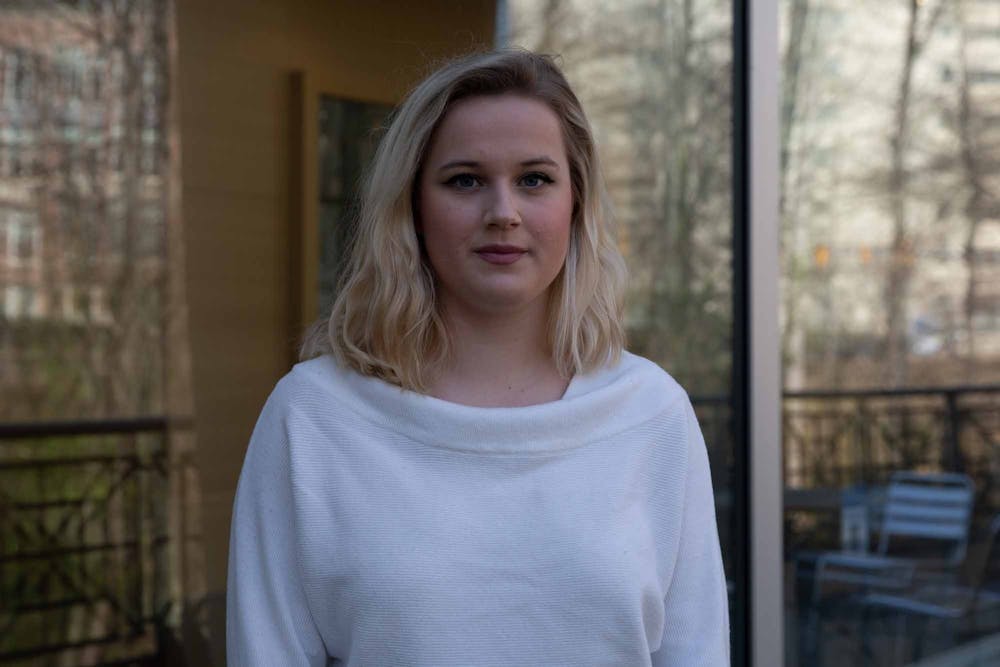“We are student advocates that can offer private support,” McCrary said. “That’s the biggest resource we provide to the Carolina community — being able to protect the identities and the experiences of the people that come to us. We recognize that it can be difficult to talk about so we want it to be safe, in control and inclusive.”
Beth Posner, a UNC law professor and advisor for Law Students Against Sexual and Domestic Violence, said the laws on sexual assault and rape have evolved to match people’s lived experiences. Her students at LSASDV connect survivors with resources and crisis centers. They also provide legal aid with the Ex Parte Pro Bono Project.
Poser said there remains a stigma, culture of shame and general misunderstanding of sexual violence.
Victim blaming, Posner said, continues to be a significant issue.
“Students come to campus with 17, 18, 19 years of life experience in a culture where their education on consent, sexuality and gender might be contributing to some of the problems we see on campus,” she said.
Posner said there is still a need for more in-depth sex and conflict education in schools from an early age.
“We are still really far away from ending rape culture,” Valentine said.
McCrary said there’s still a culture of silence where people are afraid to come and speak up because they might have their truth challenged or have their story critiqued.
Posner said figures like President Donald Trump, Judge Kavanaugh, Bill Cosby and Harvey Weinstein have ignited feelings in advocates to rally on behalf of survivors.
Chanel Miller, who wrote the memoir "Know My Name," has been one of the most recent figures in the narrative of sexual assault on college campuses.
“There are public figures and a public movement in a way that there hasn’t before,” Posner said.
The public conversation around Title IX and the #MeToo movement, Posner said, has also contributed to the higher profile of sexual assault cases.
To get the day's news and headlines in your inbox each morning, sign up for our email newsletters.
“I think the rage is being used productively,” she said. “It’s bringing people together.”
Jonathan Sauls, interim vice chancellor for student affairs, said the University is making an effort to support survivors, too. Sauls said the University will direct $2 million over the next five years to focus on preventing sexual assault and interpersonal violence prevention on campus as part of the program.
The University, Sauls said, plans to hire an expert to head strategy on issues of public health and gender-based violence.
He said he is grateful for the work students and staff — like the Delta Advocates and Gender Violence Services Coordinators — have already done to support change in the community. He also said he encourages community members to enroll in the online HAVEN skills sexual assault prevention training.
Valentine said the elevation of the sexual assault conversation can also elevate the backlash and victim blaming.
There is a misconception that false reporting rates are high, Valentine said. She said there is a myth that people lie about being sexually assaulted or raped.
She said survivors have had their autonomy taken away from them, and that the goal of OCRCC is to put them back in the driver’s seat.
“Ask survivors what support they need,” she said.
Valentine said the best way to be supportive to survivors is to be educated and stay open-minded.
“When you are talking to someone who has experienced gender-based violence, your language is very important,” McCrary said. “You need to try to create a safe and validating environment. Thank the impacted person for choosing to share their story, validate their emotions. Let them know they’re not alone. Let them know that what they’re feeling is normal.”
Valentine said student groups can make positive changes on campus — but sexual assault is still an “everybody problem.”
Change is slow, Valentine said, but requires a public dialogue. She said it is important for survivors to take the lead.
“They get to choose what happens with their story,” she said.
@alliemkelly
university@dailytarheel.com



